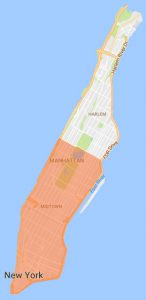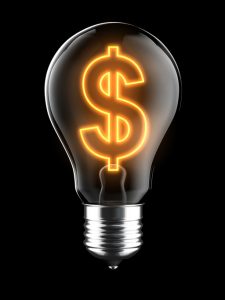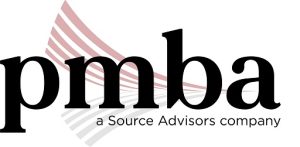Like most other industries, sales and purchases made by real estate companies are taxed drastically different among the jurisdictions across the country. Keeping up with the ever-increasing pace of changes of the more than 10,000 sales tax jurisdictions is an arduous task for even the most diligent tax professional. Of particular concern for tax professionals are the areas of the taxability of rent, taxability of ancillary services the property offers its tenants, and taxability of services performed on the property (i.e. repair, installation, etc.).
Taxability of Rent & Common Area Maintenance (“CAM”) Charges

In most jurisdictions, rent is not subject to sales tax. However, there are exceptions, especially when it comes to the rental of commercial space. Florida imposes sales & use tax on commercial rents at the same sales rate (6%) to which other taxable goods and services are subject. Tax is due on the total amount of rent paid, unless there is a specific exemption (i.e. non-profit organization, government agency). This includes payments such as mortgage, ad valorem taxes, or insurance which the tenant makes on behalf of the landlord.
New York City does not impose sales tax but does impose commercial rent tax. The rent is charged to any business that occupies or uses a property for commercial activity in Manhattan, south of 96th Street, for any trade, business, profession, or commercial activity. The tax rate is 6% of the base rent, and the rent paid must be at least $250,000 annually. All taxpayers are granted a 35% base rent reduction, which reduces the effective tax rate to 3.9%. The base rent includes real estate taxes, water charges, and insurance charges but does not include amounts spent by the landlord to improve, repair, or maintain the property.
Taxability of Ancillary Services

Even in jurisdictions where rents are not taxable, landlords provide other ancillary services that can be subject to sales tax. In New York State, the sale of electricity, rental of bicycle spaces, rentable storage space, some on-site gyms, and some amenity fees can be subject to sales tax.
The taxability laws of electricity vary in New York State for sales & use tax purposes; in addition to the rate varying by jurisdiction, the rate also varies based on whether the electricity is being purchased by a residential tenant or a commercial tenant. A landlord’s sale of electricity to its residential tenants are exempt from the state portion of the tax, as well as the tax imposed within the Metropolitan Commuter Transportation District. However, such sales are subject to the local portion of the sales tax imposed within New York City. The sale of electricity to commercial owners is taxable in all jurisdictions.
The taxability of the gym membership will vary on several facts, including whether or not the facility is open to the general public and whether the material purpose of the club is to organize or promote sports or athletic activities. Membership dues for admission to athletic clubs are taxable in New York State at the full sales tax rate.
The state has defined an athletic club as “any club or organization which has as a material purpose or activity, the practice, participation in, or promotion of any sports or athletics” (NY Reg Sec 527.11(b) (7) (i)). Additionally, club or organization means “any entity which is composed of persons associated for a common objective or common activities (…) Significant factors, any of which may indicate that an entity is a club or organization, are: an organizational structure under which the membership controls social or athletic activities, tournaments, dances, elections, committees, participates in the selection of members and management of the club or organization, or possession by the members of a proprietary interest in the organization. (NY Reg. Sec 527.11(b) (5)) If a facility does not meet the definition of an athletic club, the dues and fees are not subject to New York State sales tax but are only subject to New York City sales tax on health clubs at 4 ½%. Section 1212-A(a)(2) of the Tax Law authorizes New York City to impose a local sales tax at the same uniform rate on “beauty, barbering, hair restoring, manicuring, pedicuring, electrolysis, massage services and similar services, and every sale of services by weight control salons, health salons, gymnasiums.”
Taxability of Capital Improvements vs Repairs vs Installations
The taxability of services performed on real property will vary depending on whether the service is deemed to be a repair, installation, or a capital improvement. The former two are subject to sales tax in most jurisdictions, and capital improvements are exempt from sales tax if they meet that specific jurisdiction’s criteria of capital improvement. In order to qualify as a capital improvement, most taxing jurisdictions have strict criteria that the service must meet. For example, in New Jersey, capital improvements are installations of tangible personal property that increases the capital value or useful life of the real property and tangible personal property installed must be permanently attached to the real property. The New York State tax law is similar but has one additional condition that the service must meet. The service performed must result in the tangible personal property becoming part of the real property or permanently affixed to the real property, so that removal would cause material damage to the property or article itself.
Here are taxability determinations for some sample services performed in New York State:
Although, not in the business of providing goods and services that are typically assumed to be subject to indirect taxes, real estate companies should be aware of what their exposure areas are. As states are increasing the frequency of audits to boost their revenue, real estate companies should at the very least conduct an internal review of their revenue sources and expenditures to determine the extent of their liabilities.
